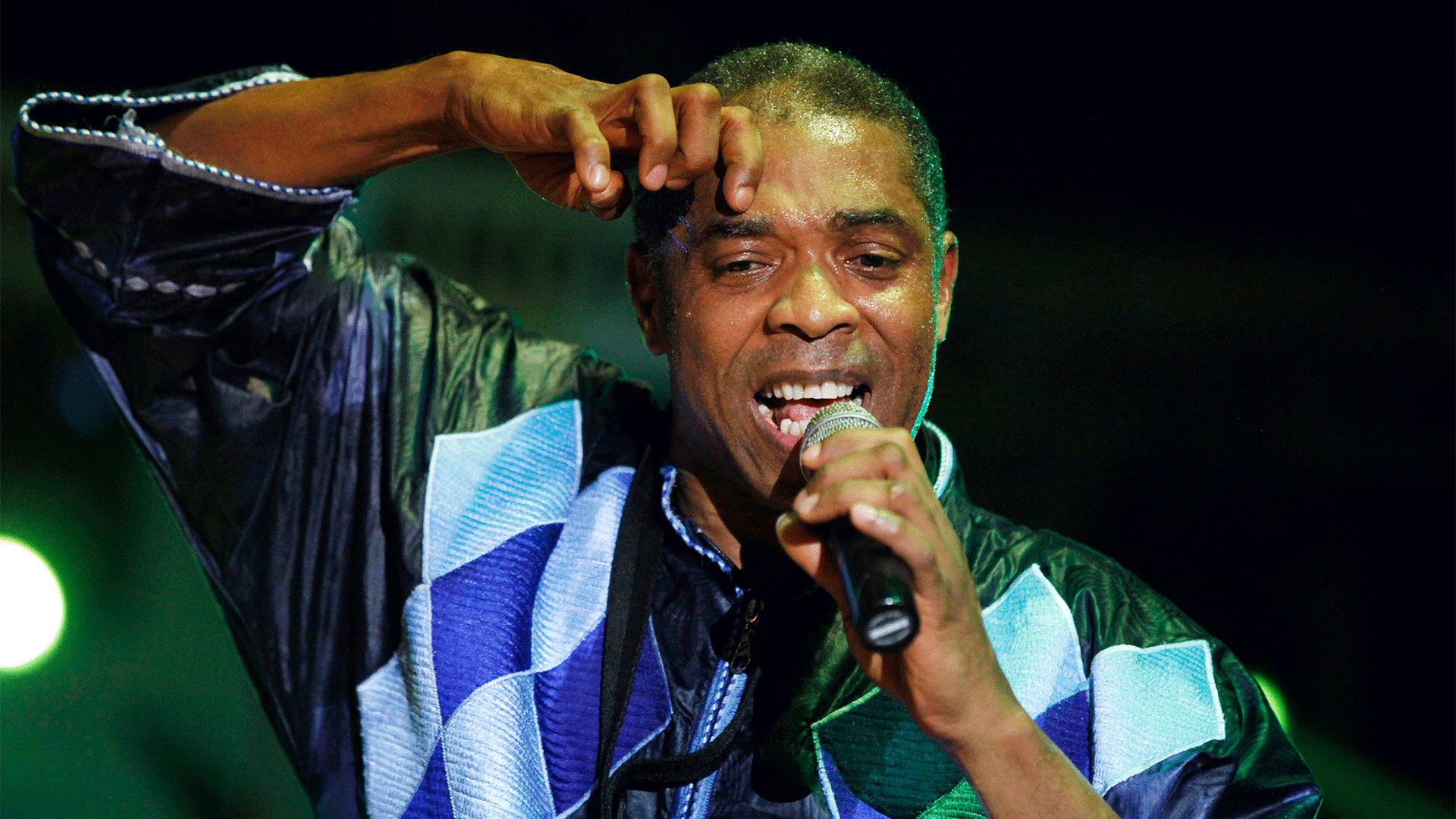Nigerian musicians are having their moment. Last month, Burna Boy and Wizkid won big at the Grammy Awards. And now, legendary musician Fela Kuti has been nominated for the Rock & Roll Hall of Fame.
For decades, Fela Kuti pioneered the popular Afrobeat genre — a term he coined in the 1960s — mixing multi-instrumental virtuosity with unfiltered political messaging.
The roots of Afrobeat — not to be confused with the more pop-oriented Afrobeats, which has exploded in popularity in recent years — is socially conscious music, according to Made Kuti, Fela Kuti’s grandson.
“Everyone who knows him will know that he was a very concerned citizen and, in many ways, an activist. He fought for human rights, he fought for understanding culture. He fought for his community.”
“Everyone who knows him will know that he was a very concerned citizen and, in many ways, an activist,” he said. “He fought for human rights, he fought for understanding culture. He fought for his community.”
Now, the 25-year-old is continuing and pushing the boundaries of the Afrobeat genre in his own album “For(e)ward,” which he released earlier this year as part of a dual album with his father, Femi Kuti. Together, the albums are entitled “Legacy+.”
That Made Kuti has become a musician in his own right seems, at least retrospectively, almost a given. He grew up in the New Afrika Shrine, listening to recordings of his grandfather Fela Kuti, and later joining his father Femi Kuti’s band performances from a young age.
Related: ‘Nature is always singing’: Make your own music with their songs
His multi-instrumentalist chops are on full display in his opening song “Free Your Mind,” a trumpet- and saxophone-filled track encouraging Nigerians to be politically conscious. Made Kuti plays not one, but all, of the instruments in his album.
“I wanted my sound to take from the things that I was passionate about, which is Afrobeat. But I like rock ’n’ roll, I like reggae, I like classical music. I studied classical music for four years. I still teach myself jazz. So, I wanted all of this to reflect in the music,” he said.
“I wanted my sound to take from the things that I was passionate about, which is Afrobeat,” Made Kuti began. “But I like rock ’n’ roll, I like reggae, I like classical music. I studied classical music for four years. I still teach myself jazz. So, I wanted all of this to reflect in the music,” he said.
Together, those influences have resulted in a distinct Afrobeat sound, while also tackling familiar subjects that reflect the everyday problems Nigerians face — corruption, unemployment, poor infrastructure and police brutality.
Made Kuti explores the latter in his song, “Your Enemy,” which examines the root causes of police brutality. Though he wrote it more than a year and a half ago, it recalls the #EndSars anti-police protests that erupted across Nigeria last year.
“The policeman is really just trying to make a living. He’s underpaid, he has many children, he can’t afford school fees. He, like us, can’t deal with power cuts all the time. He has to buy generators, he has to feed his family, he has a wife,” Made Kuti explained.
“Like everybody else, they will find a means of survival by any means necessary … and if it means they have to extort innocent civilians, they’ll do that. So, the real enemy is the system,” he continued.
The album ends, coincidently, Made Kuti said, on a more positive note, with the upbeat drums-driven track “We are Strong.”
“They’ll come to unite,” he sings. “Together they’ll rise. They’ll rise for their people.”
